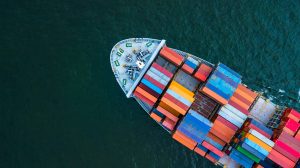On October 15, Spanish authorities announced that they had arrested four people in connection with a commercial network conspiring to evade sanctions on Russia by routing chemical products through Spain using front companies in Armenia and Kyrgyzstan to obscure the final destination.
In a joint operation, Spanish National Police and the Tax Agency’s Customs Surveillance Service seized 13,000 kilos of chemical products in the Port of Barcelona and on October 8 made four arrests in Girona and Barcelona.
In a press release, the Spanish National Police said their investigation began in 2022, as sanctions levied on Russia “began to limit the country’s reach to the materials and technologies that support its war effort. “
A company, which the Spanish authorities say was managed by Russian citizens, allegedly developed a “commercial, logistical and economic triangulation system aimed at the illegal supply of chemical products to Russia.” Those chemical products, investigators says, are “possible precursors to chemical weapons or nerve agents…”
The Spanish company allegedly had a subsidiary in Moscow which was the true final recipient of the chemical products, but the “final destination was concealed by a succession of front companies in countries such as Armenia and Kyrgyzstan. These intermediary companies were in no way recipients of the goods, which were diverted by land to the Russian Federation.”
As Robin Brooks detailed in a recent report for the Brookings Institution, and other analysts have noted elsewhere, since the Russian full-scale invasion of Ukraine in 2022, the countries of Central Asia and the Caucasus have seen a surge in exports “so large that it cannot conceivably be targeting domestic demand in these countries.” Although it remains difficult to prove, “it seems highly likely that this export boom reflects transshipment of goods to Russia.”
As Brooks explained:
One telltale sign of transshipment is that a country like Germany will report exports far above what Kyrgyzstan reports as imports coming from Germany. This kind of divergence suggests that exporters in Germany invoice goods as going to Kyrgyzstan, where they never actually show up.
Although the Spanish authorities did not explain in detail the scheme, “false invoicing” as described by Brooks is possibly how the Russian-operated Spanish company exported goods overland to Russia, while listing them as being exported to the shell companies in Armenia and Kyrgyzstan. On paper, the trade was legal, but the goods did not go where the paperwork said they did.
It’s not clear from present reporting what, if any, involvement there was by Kyrgyz citizens in the scheme, but this case illustrates once again the ways in which the countries of Central Asia and the Caucasus are being used to facilitate the transfer of sanctioned goods into Russia.

































